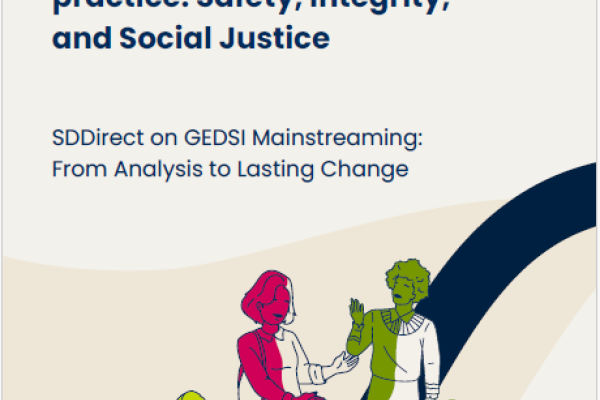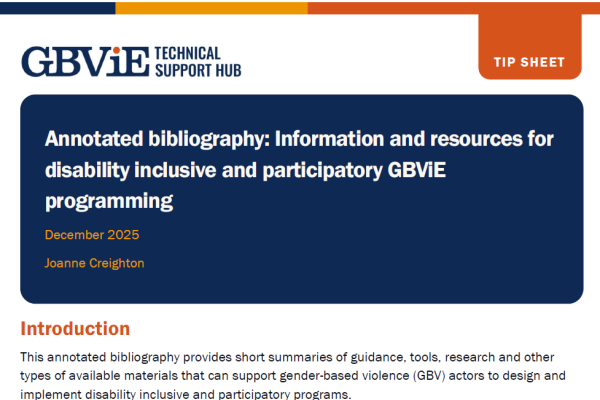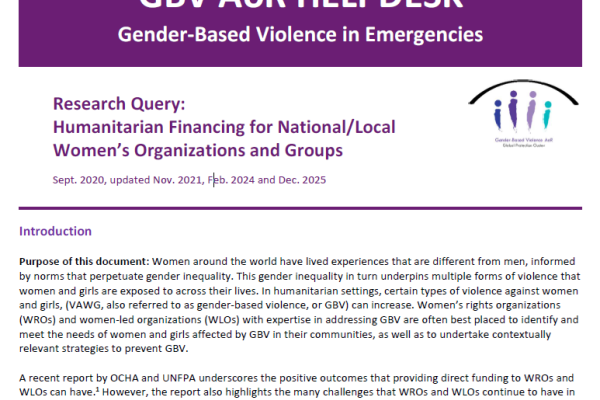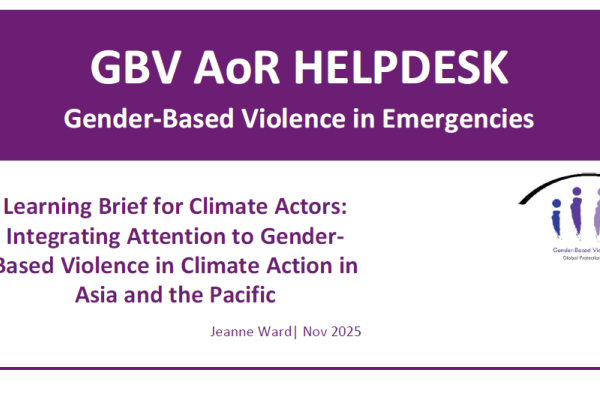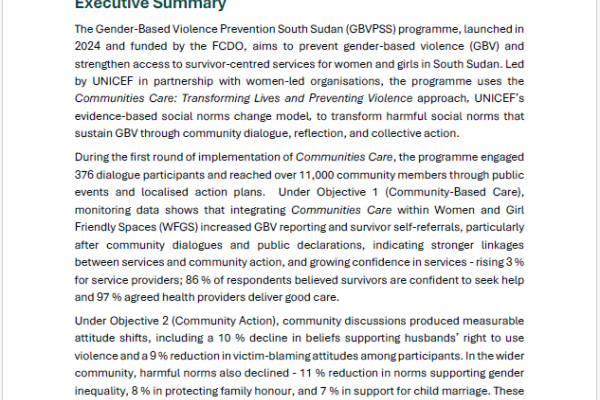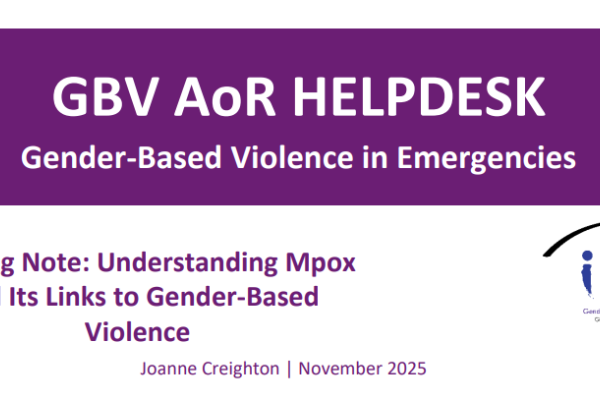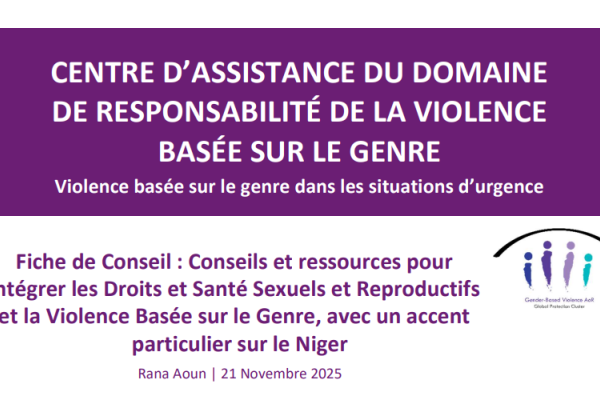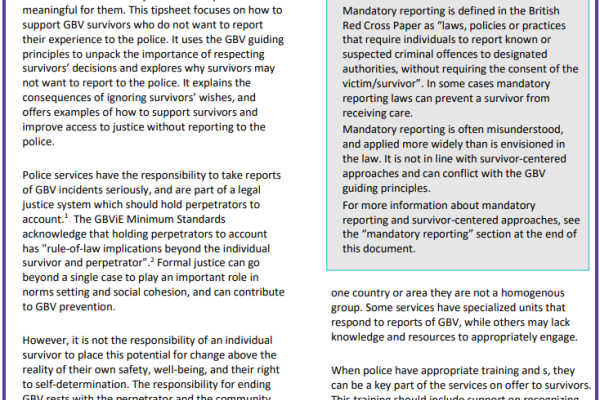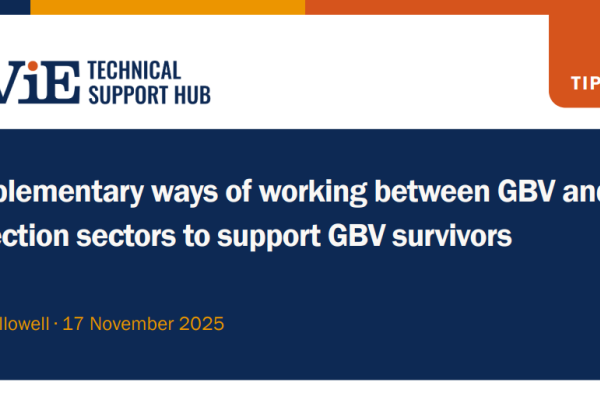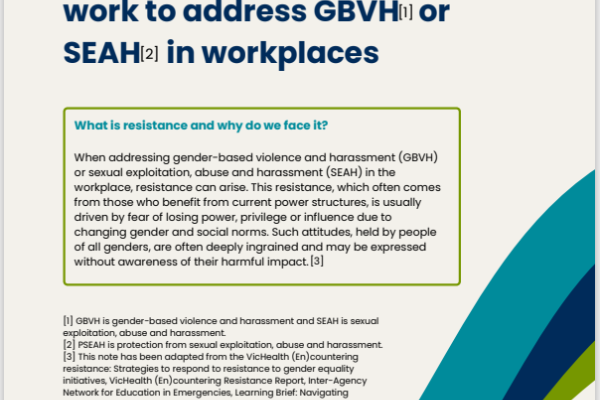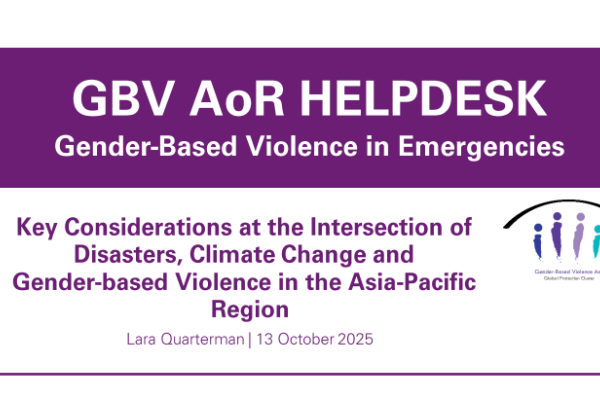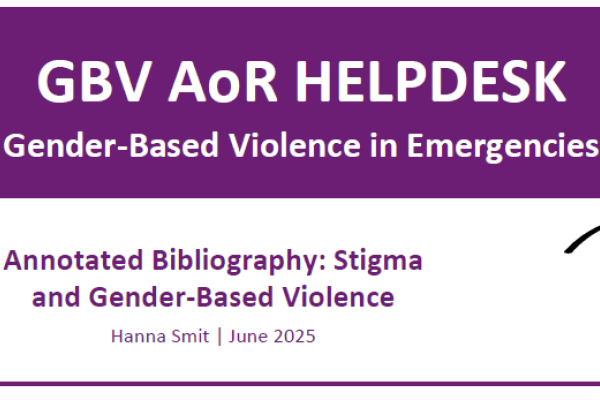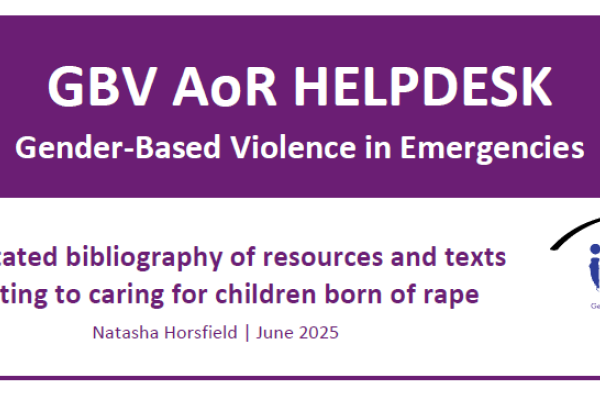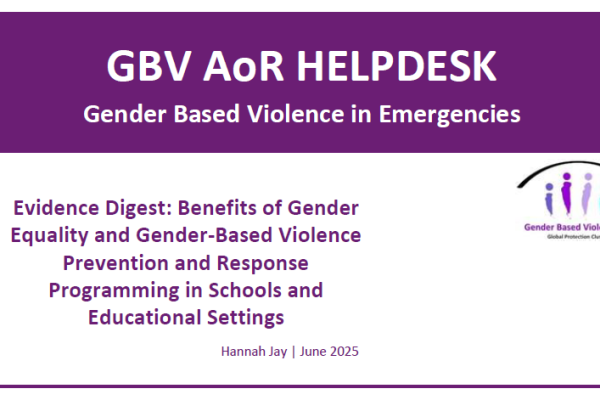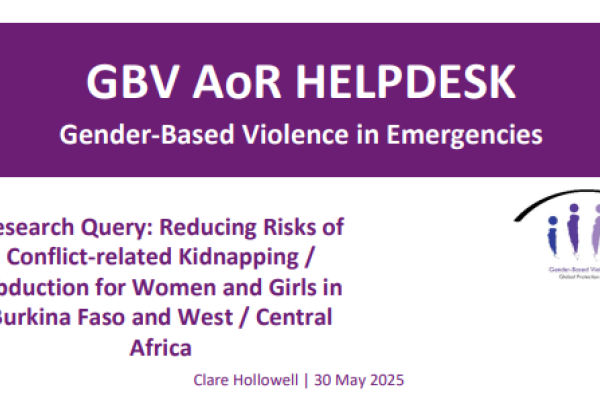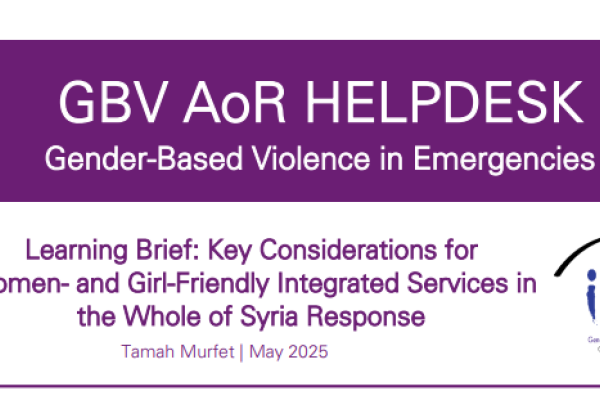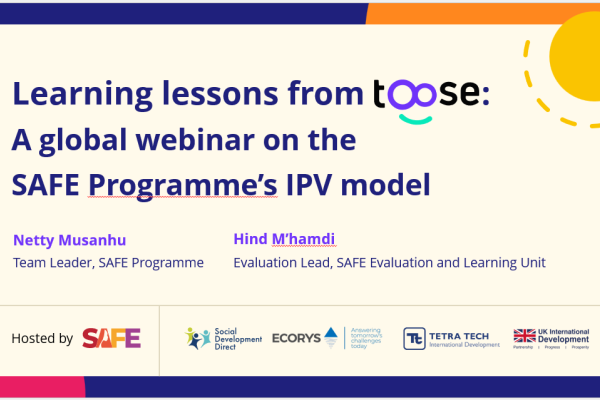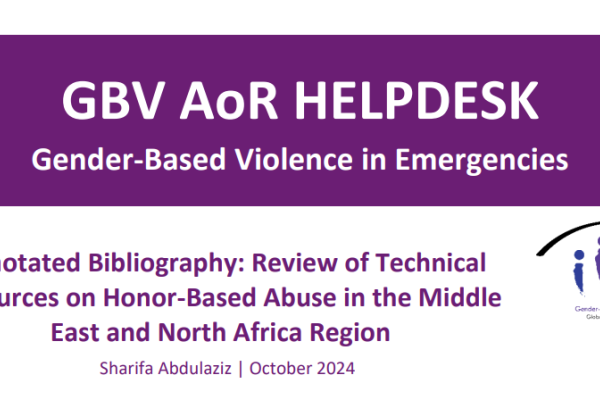This resource offers practical, experience-based guidance on GEDSI mainstreaming in practice showing how to move from strong analysis to lasting change in policies, systems and programmes. It is…
SDDirect Library
Use the search functions below to explore the full range of publications, tools and research produced by SDDirect.
Displaying 1 - 18 of 338
- This annotated bibliography provides short summaries of guidance, tools, research and other types of available materials that can support gender-based violence (GBV) …
- Women around the world have lived experiences that are different from men, informed by norms that perpetuate gender inequality. This gender inequality in turn underpins multiple forms of violence…
- This learning brief introduces climate and disaster risk reduction (DRR) actors to the importance of addressing the connections between GBV and climate change to facilitate more effective and…
- This resource provides an overview of work undertaken by the Gender-Based Violence Prevention South Sudan (GBVPSS) programme. Launched in 2024 and funded by FCDO, GBVPSS aims to prevent GBV and…
- This briefing note aims to provide gender-based violence (GBV) practitioners and policymakers with essential information about Mpox, a viral disease. During public health emergencies like Mpox…
- [English] This tipsheet helps health and GBV workers (including volunteers and frontline service providers) to understand the interactions between SRHR and GBV in humanitarian crises. The resource…
- This tipsheet focuses on how to support GBV survivors who do not want to report their experience to the police. It uses the GBV guiding principles to unpack the importance of respecting survivors’…
- It is important that both GBV and Protection actors understand when collaboration is appropriate, what should be in place to enable it, and when to advocate for separate programming. This tipsheet…
- Drawing on insights from the Victorian Health Promotion Foundation and the Inter-Agency Network for Education in Emergencies (INEE), this resource was developed as a short note to help organisations…
- This learning paper explores the links between climate, GBV, and disasters in Asia and the Pacific and considers key actions GBV specialists working in settings affected by climate change and…
- Stigma plays a powerful and often overlooked role in shaping the experiences of survivors of gender-based violence (GBV). This annotated bibliography explores available evidence on how stigma…
- This annotated bibliography provides an overview of resources relating to children born of rape, by building on a previous GBV AoR Helpdesk resource list on caring for children born of rape (2018) -…
- This evidence digest examines available documentation on three main issues: 1) whether and how targeted school-based GBV prevention and response initiatives can reduce boys’ perpetration of violence…
- This annotated bibliography looks at the existing resources available for understanding and responding to the kidnapping / abduction of women and girls in West and Central Africa, specifically…
- This learning brief aims to give a concise, user-friendly summary of key considerations for ensuring that integrated service points – such as community centers and One-Stop Centers (OSCs) – are safe…
- To mark this year’s 16 Days of Activism against Gender-Based Violence, the SAFE Programme held a webinar to share learning from its Toose model on the prevention of intimate partner violence (…
- This annotated bibliography provides an overview of relevant literature and resources on Honor-Based Abuse (HBA) within the Middle East and North Africa (MENA) region and among communities from MENA…
